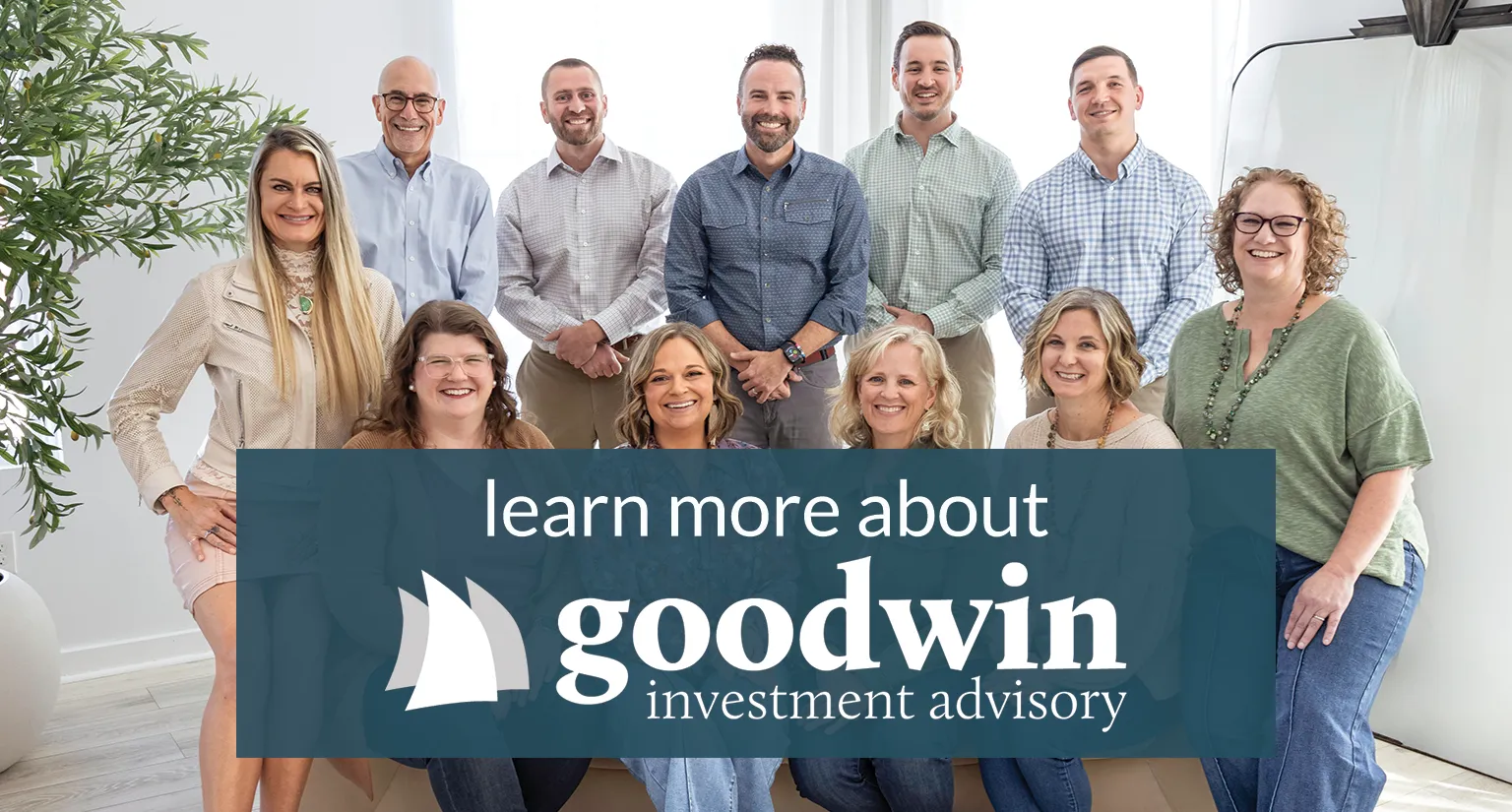
1. Create a budget to zero – tell your money where you want it to go.
Starting with creating a budget is very important, because budgeting will help you to achieve the goals you are working towards, whether that is getting out of debt, saving for a house, or just trying to keep your eating out expenses from getting out of hand. You always need to begin by making decisions on where you want your money to go. We highly recommend YNAB (you need a budget) budgeting tool.
2. Don’t let interest go both ways – debt is not your friend.
“Compound interest on debt was the banker’s greatest invention, to capture, and enslave, a productive society.” – Albert Einstein
Your greatest wealth building tool is your income. You need to get out of debt so you can build wealth. How many of you would like to be debt-free? How many of you would like to have financial freedom? How many of you would like to be the hero in your own story of obtaining that financial freedom? At Goodwin Investment Advisory we do not recommend the use of credit cards. If you currently have credit card debt, you can create a plan to begin paying this debt off using methods such as the debt snow ball tool. Click here to read an article on NerdWallet.com on How to Use Debt Snowball to Pay Off Debt that also provides the debt snowball calculator. To learn more about the effects of debt and credit card use on your brain, read our blog called, This is your brain on credit cards.
3. Savings account
After you have created a budget and have decided to no longer use credit cards. Then, you should open a savings account and add money each month until you reach $1,000. Once you have $1,000 set aside for an emergency fund, then you can begin to pay off all of your debt. Once you have completed paying off your debt you can now add to your cash savings account until you have saved 3-6 months in living expenses.
4. Save 15% to retirement
Once you have successfully paid of your debt, and have a fully-funded, 3-6 months of expenses in a savings account, you should begin preparing for your retirement. Dave Ramsey’s rule of thumb is to aim to save at least 15% of your pre-tax income each year for retirement. It is easier than you think to save for your retirement and build your retirement account. Let’s say you work with an investing pro and begin by contributing $300 per month to a retirement account. If you did this for just five years with an average growth rate between 10-12% per year this could possibly add over $260,000 to your nest egg in 30 years. That means with a little planning and motivation, you can retire with at least enough money to cover your bills in the future. You can read more about this in an article by Dave Hogan called “How to Save 15% for Retirement Without Cramping Your Style.”
5. Setting up funds automatically
Albert Einstein proclaimed, “Compound interest is the 8th wonder of the world. He who understands it, earns it; he who doesn’t, pays it.” If you invest $200 per month for 40 years you will have 1 million dollars at an annual growth rate of 12%. (however, in your planning you should plan based on an average annual growth rate of 10%) For more saving options and calculations on how to become a millionaire check out this article by Paula Pant, “Learn How to Save to Become a Millionaire With Small Investments.” You can set up investments for all different purposes: to buy a car, take a vacation, put a down payment on a house. We recommend a book titled, The Automatic Millionaire by David Bach.
6. Buy + Hold – investment strategy
Buy and hold is a passive investment strategy in which an investor buys stocks (or other types of securities such as ETFs and mutual funds) and holds them for a long period regardless of fluctuations in the market. The market can fluctuate and people tend to invest with emotions and forget to keep a long term strategy. Or, they buy and sell countless times without reaping the long term benefits of a BUY and Hold Investment Strategy. Downturns can make you nervous, and want to sell quickly, reacting based off of emotion, but if history continues to repeats itself, then you will be fine. Historically, the US stock market has held a positive annual return. From 1973 to 2016, the S&P 500 Index has an average return of over 11%. In 2019, there was a 31.49% gain! This is the reason why so many people invest in the market — because long-term it really works, especially if you diversify your investments.
7. Think for the long term – not just for now.
Traditional IRA vs Roth IRA. Traditional and Roth IRAs are both types of tax-advantaged accounts designed to help people save for retirement. Roth IRA take the taxes out up front, which means you will not have to pay taxes again on the money later. This is better than the traditional IRA in the long run, because you will have to pay taxes when taking money out once you reach the age requirements to receive your retirement money. If you take money out early using a traditional IRA you will also incur substantial fees.
8. Be connected – have accountability.
Having someone to hold you accountable to reaching your financial goals is key to actually achieving your goals. The American Society of Training and Development (ASTD) did a study on accountability and found that you have are 65% more likely to reach a goal if you commit to someone. And they learned that if you have a consistent accountability appointment with a specific person – you will increase your chance of successfully achieving your goal by up to 95%. This can be a best friend, a spouse, a parent, or a mentor.
9. Set financial goals.
There is tremendous power in setting goals. It helps you plan where you want to go in life and keeps you motivated to turn your vision of your future into a reality. Goal setting enables you to be intentional and proactive about what you want to achieve. The process of writing your goals down is so powerful that according to a research study, you are 42% more likely to accomplish them simply by writing them down. Plus, writing down your goals helps you to improve focus, boost your motivation, reduce your stress level, achieve bigger goals, and track your progress.
10. Track consumer advocates
If you want to win with money you need to follow at least one consumer advocate. We like and recommend Dave Ramsey, Rachel Cruze, Anthony Oneal, Suze Orman, and the Millenial Money Man. In a recent blog titled, Consumer Advocates, we shared a brief description of the advocates mentioned here along with resources they provide and easy ways to connect with them.
About Goodwin Investment Advisory
Tim Goodwin
President and Founder of Goodwin Investment Advisory recently came to Berry College (his Alma Mater) to speak about Financial Freedom to the students at Gate conference. Tim Goodwin graduated from Berry College with a degree in Finance. While attending Berry, Tim was the President of BIG (Berry Investment Group) and worked in the BITS (Berry Information Technology Student) program. He was a Freshman mentor for Dr. Janna Johnson and also part of the in Exaltation (singing group). He met his beautiful wife Maureen, at Berry and asked her to marry him at the House Of Dreams. He married Maureen before his Senior year at Frost Chapel.
Upon graduation he went to work for a local financial firm, but quickly learned that his personal values and the values of the firm did not line up. So he started his own firm, Goodwin Investment Advisory, in Woodstock, Georgia, because –
“I saw the need for a different kind of financial firm that upheld my values of integrity, honesty and trust. A firm that operated in the best interest of its clients at all times and fulfilled my vision to lead all people to financial peace, independence and generosity.”
Tim has a unique ability to lead with questions, discern valuable information, and see past obstacles that empower people to go further faster. This ability transfers to all aspects of his life including helping guide clients at GIA. Tim loves his job at GIA because – “It is the best avenue available for me to do what God has created me to do.” His company vision is “seeing families empowered with confidence that their legacy will last for generations.”
Goodwin Investment Advisory is making a huge impact on the families of Woodstock, GA and the surrounding areas, plus they now have clients in 20 states. GIA provides clients the confidence, resources, and advice they need so that their money is invested right and will be there when they need it. To learn more about Tim’s financial philosophy you can read Tim’s book, Exponential Wealth: How to Create sustainable Income for Life.










